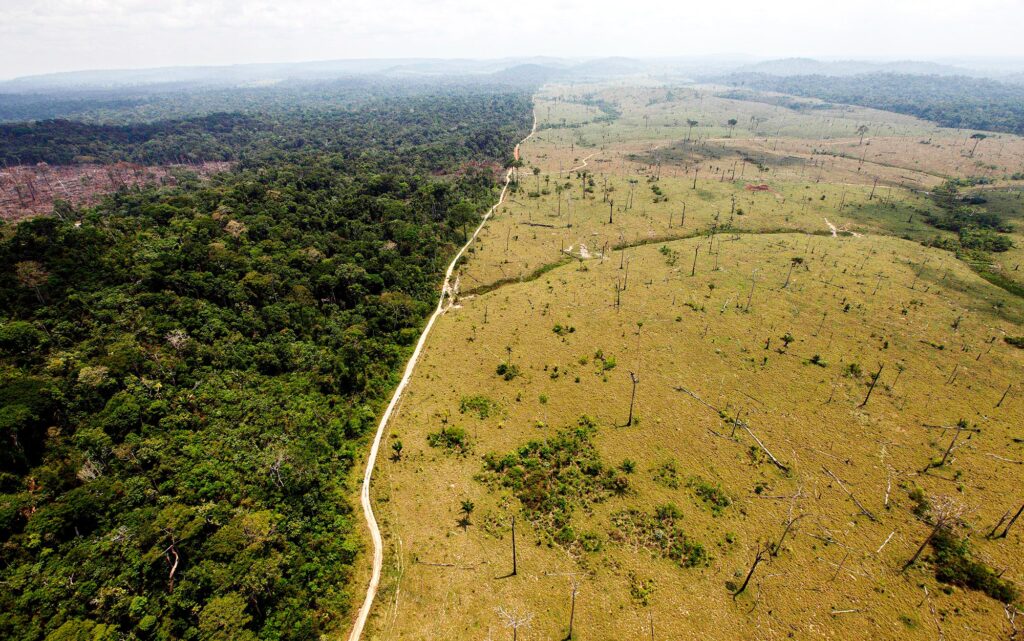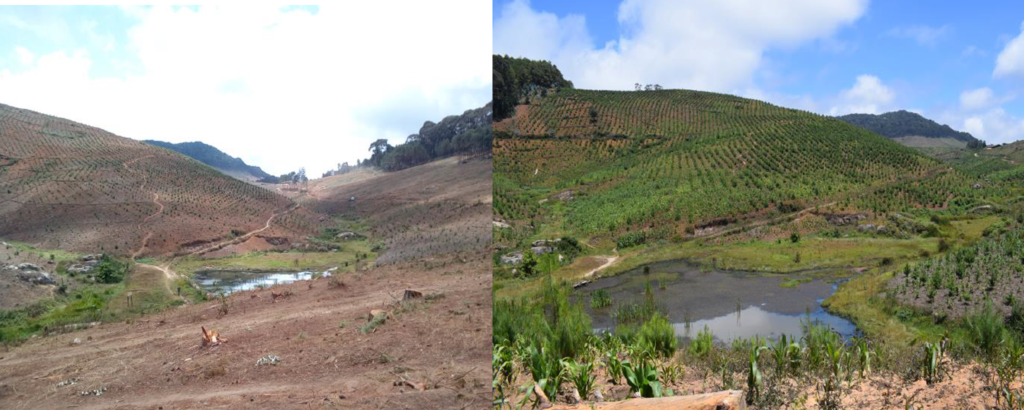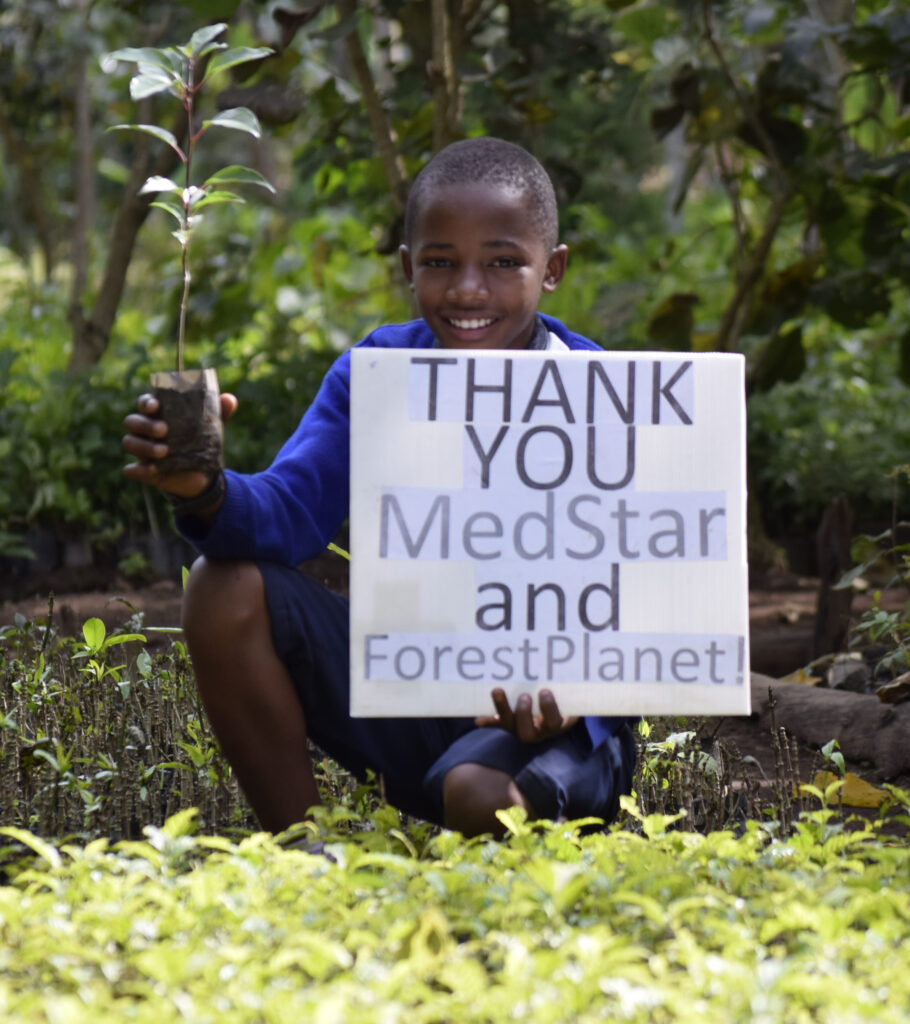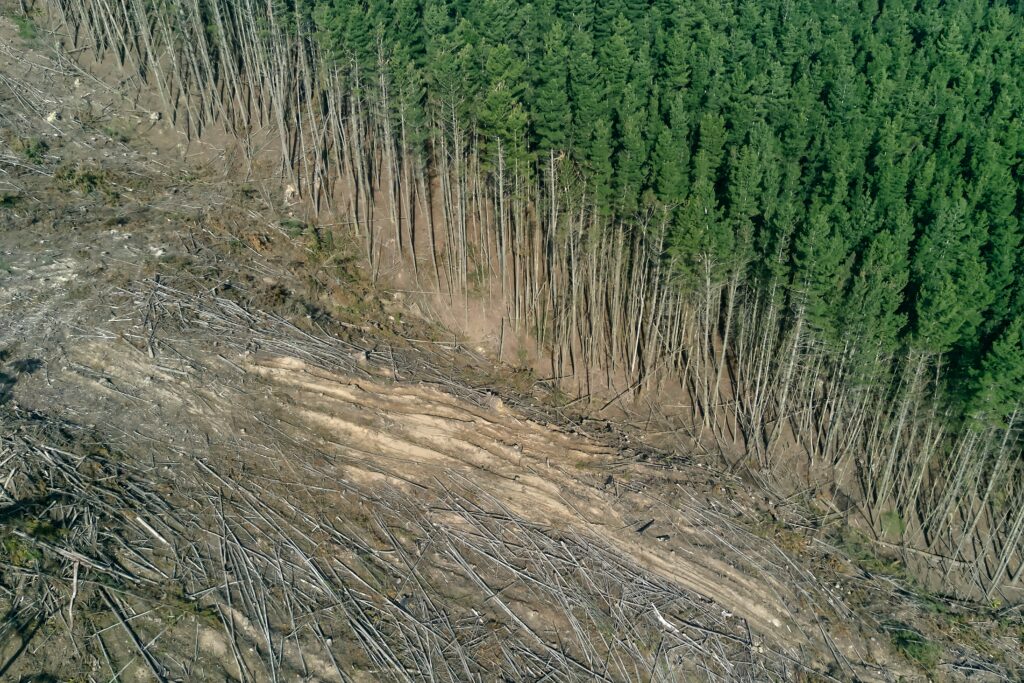Forest Restoration: Reducing the risk of future pandemics
As the world continues to struggle with a global pandemic, many of us are asking, “What’s next?” Once we finally contain the current pandemic, how will we prevent the next one? What can we do now, as a society, to avoid future pandemics? One possible solution may lie hidden in the forest—healthy trees create a healthy environment, one that supports human health. Forest restoration prevents soil erosion and provides natural habitat for wildlife, but it also has many other benefits that could be critical in preventing future pandemics.
It all begins with planting trees. ForestPlanet is honored to partner with MedStar Health to plant 30,000 trees in the parts of the world where they will do the most good.
“We healed people in our hospitals and clinics. Now we’re healing the Earth.”
At ForestPlanet, we know that every tree makes a difference. Imagine our gratitude when MedStar Health committed to planting 30,000 trees in honor of all 30,000 MedStar Health employees.
Dr. Stephen Peterson at MedStar Washington Hospital Center proposed recognizing his colleagues’ work during the COVID-19 pandemic.
“Through this donation, we’re thanking the associates who were so brave coming into work over the past year. Every member of the team has been courageous. Everyone honored the MedStar Health name in that way,” Peterson said. “We healed people in our hospitals and clinics. Now we’re healing the Earth. I’ve always been environmentally conscious, but it never really hit me how important it was until our grandchild came along four years ago. If we don’t start taking action now, will future generations have a wonderful sustainable Earth?”
“Healthy ecologies lead to healthy communities.”
As we mentioned in an earlier ForestPlanet post, the scientific community has long recognized that healthy ecologies are essential for healthy communities. In a recent policy article published in the journal Science, a team of researchers outlined the “clear link between deforestation and virus emergence.” The authors explained that investing in reforestation makes economic sense and can save lives:
“Currently, we invest relatively little toward preventing deforestation and regulating wildlife trade, despite well-researched plans that demonstrate a high return on their investment in limiting [zoonotic diseases] and conferring many other benefits. As public funding in response to COVID-19 continues to rise, our analysis suggests that the associated costs of these preventive efforts would be substantially less than the economic and mortality costs of responding to these pathogens once they have emerged.” (Emphasis added)
It’s time to pay attention
In the journal Nature, scientists reported on an analysis of more than 6,000 ecological communities on six continents, pointing to “a growing body of evidence that connects trends in human development and biodiversity loss to disease outbreaks.”
“We’ve been warning about this for decades,” stated Kate Jones, an ecological modeller at University College London. “Nobody paid any attention.”
From the Nature article: “As humans diminish biodiversity by cutting down forests and building more infrastructure, they’re increasing the risk of disease pandemics such as COVID-19. Many ecologists have long suspected this, but a new study helps to reveal why: while some species are going extinct, those that tend to survive and thrive — rats and bats, for instance — are more likely to host potentially dangerous pathogens that can make the jump to humans.”

Concentrating risk
Why are diseases that cross over from animals to humans increasing? Jones and her colleagues found that “a loss in biodiversity usually results in a few species replacing many — and these species tend to be the ones hosting pathogens that can spread to humans.”
A decline in biodiversity that results from deforestation, i.e., reduced natural habitat acreage, leads to increased risk concentration. How can we remedy this? Well, one thing we can do is to plant more trees. It sounds almost too simple, but let’s take a moment and think about all that trees have to offer.
Many benefits
The benefits of planting trees are well known and include:
- Reforestation decreases the pressure on our water supply and reduces downstream pollution;
- Trees absorb carbon dioxide, generate oxygen, and help remove a wide range of pollutants from the air;
- Trees provide a buffer against the sun’s heat, which alleviates health problems related to extreme temperatures;
- Reforestation helps repair animal habitats that have been damaged or destroyed through over-development; and
- Trees preserve fresh water sources, increase soil quality and diversity, and modulate the local climate.
If the forest restoration processes are managed properly, these benefits can be realized in a matter of years, not decades. Additionally, all the benefits listed above combine to help local economies fighting food and income security, as we describe in a recent blog focused on this on this topic.

Building partnerships around the globe
ForestPlanet has made friends across the globe. For example, our tree-planting partner in Tanzania keep us up to date on the trees they plant and the projects they manage. Those trees improve the soil, which impacts soil production, meaning that people who live near the newly planted trees eat better and can sell the fruits of their labor (hello: avocados!). Economic opportunity changes lives.
ForestPlanet will continue to create new connections like the partnership we are building with MedStar, and with a variety of other organizations all around the world. We believe that there are plenty of other health care organizations, businesses, and all manner of consumer brands that care about a habitable planet and want to be part of our successful and positive movement. Our goal is to make a huge impact, and of course individuals can play a very important supporting role as well.
Meanwhile, we hope that the many acts of selflessness and sacrifice made by health care workers will be remembered and celebrated. Whether working at a modern MedStar facility, or at a remote clinic in the developing world, they will be heroes throughout the ages. We hope that honoring the MedStar community by planting 30,000 trees is just the beginning of many great forests to come.


